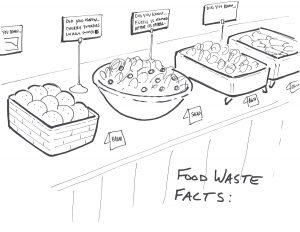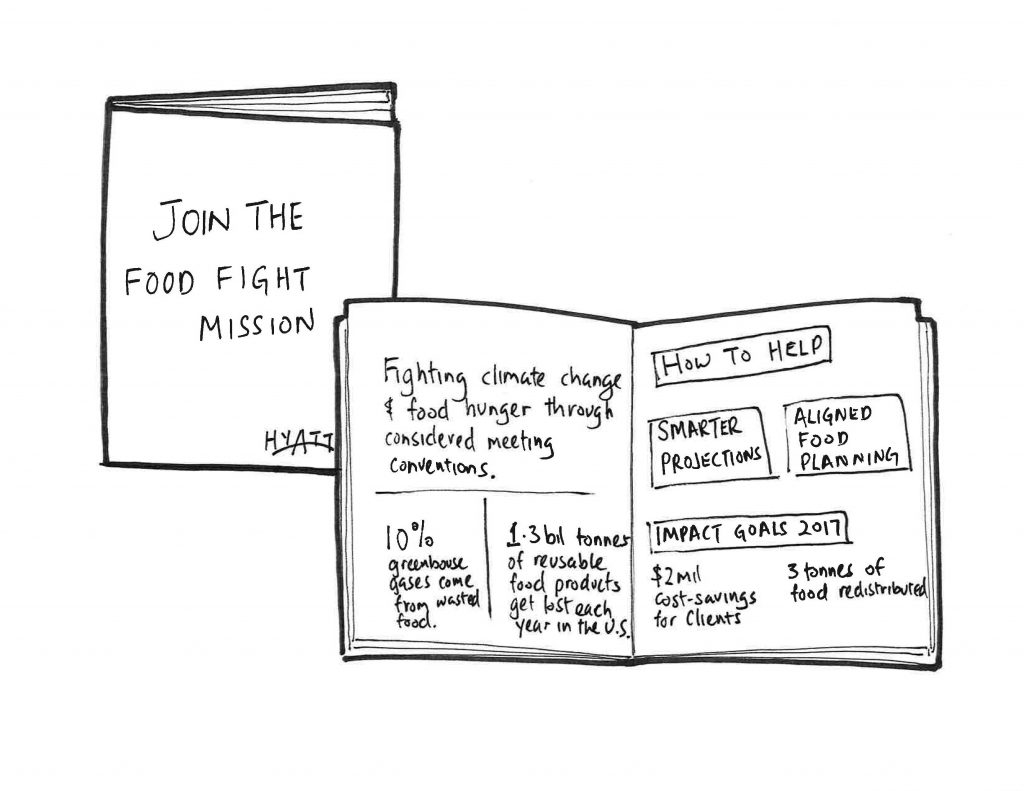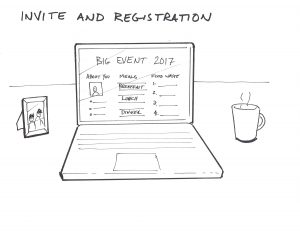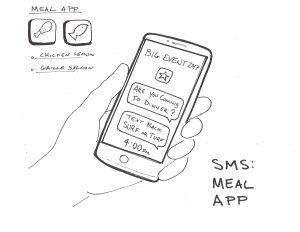Working with Clients, Partners and Guests
External stakeholders play a key role in preventing food waste and handling overproduction. But balancing varying interests can be challenging. Maintaining consistent communication to accurately prepare for an event or manage food after an event is essential to success.
![]()
![]()
![]()
![]()
Who are your key external stakeholders?
Event Clients – Clients are focused on successful delivery of event content, providing participants with exemplary food and drink service and an impeccable experience.
Meeting Planners – Meeting planners are tasked with the logistical organization of an event, including menu selection, registration, providing periodic headcount updates to the client and venue, and ensuring sufficient and high quality food is provided to guests – all while staying within budget and timeline.
Hotel Guests & Event Attendees – Their presence or absence at an event drives a percentage of the overproduction or leftover food at any event or breakfast buffet.
Donation Partners – Establishing a relationship with a local food recovery organization will help reroute underutilized food for human consumption.
Diversion Partners – To manage excess food that cannot be reused or donated, properties can contract with a local organic waste hauler.
Engaging Clients, Planners and Guests in Food Waste Reduction
Here’s how you can look for ways to engage with your key external stakeholders.
Clients & Meeting Planners
Sales Conversations
Train the sales staff to have effective conversations with clients and meeting planners, using guiding principles for preventing food waste.
Communication and RSVPs
Set clear expectations for headcounts before and during an event with the goal of minimizing overproduction. Encourage meeting planners to use software that can track meal by meal attendance to provide your property with accurate headcounts by meal.
Menu Planning
Encourage meeting planners to specify clients’ dietary needs and meal attendance during the registration process to accurately forecast headcount for each meal.

Reporting
Meeting planners predict food consumption patterns, attendance, and attrition using data trends and experience with similar events – provide them with better data on overproduction and food utilization, which will help them plan for future events at your property. If the property and the guest can save money by eliminating excess food or donating to community partners, it’s a win-win for all involved.

“I do think our customers are more aware of the food waste issue and that’s good. Our customers will push us to do more. Now we get questions from customers and meeting planners about how we handle food waste.”
Guests
Food Philosophy
A food philosophy is an articulation of how your property, brand and chef value food, which can resonate with guests’ personal values and increase brand loyalty. Sharing your food philosophy and food waste goals in the buffet area can engage guests while drawing their attention to the amount of food they take and leave on their plate.
An audit performed during WWF’s demonstration projects showed that plate waste decreased when guests were presented with such conscious consumption cues at the buffet. Guest surveys performed by WWF revealed 80% of guests favored or did not mind the use of signage on a buffet that encouraged less wasteful consumption in the face of abundance.

Communication Channels
Consider including your food philosophy on multiple guest interfaces. Utilize the Toolkit for Communicating Food Waste to Guests in order to bring guests into the conversation.
Meal by Meal RSVPs
Ask guests to provide updated RSVPs when checking into their room or registering for their event to drive accurate food production numbers.



